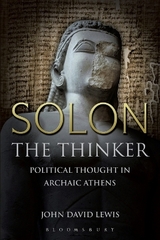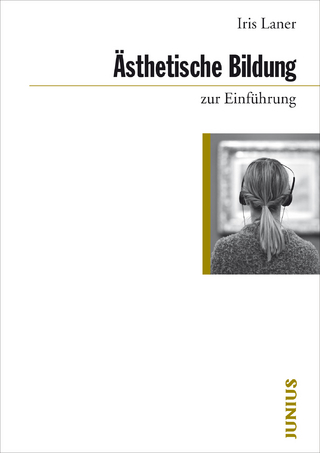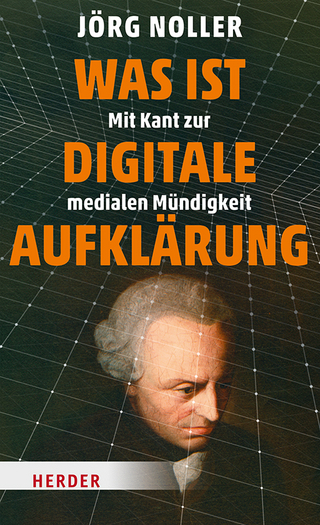
Solon the Thinker
Political Thought in Archaic Athens
Seiten
2006
Gerald Duckworth & Co Ltd (Verlag)
978-0-7156-3456-1 (ISBN)
Gerald Duckworth & Co Ltd (Verlag)
978-0-7156-3456-1 (ISBN)
- Titel erscheint in neuer Auflage
- Artikel merken
Zu diesem Artikel existiert eine Nachauflage
Examines the political ideas in the fragments of Solon, poet and lawgiver of Athens, with an emphasis on the relationship between the individual men of Athens and the polis (city-state). This book presents the hypothesis that Solon saw Athens as a self-governing, self-supporting system, akin to the early Greek conceptions of the cosmos.
"Solon the Thinker" examines the political ideas in the fragments of Solon, poet and lawgiver of Athens (c. 594 BC), with a specific emphasis on the relationship between the individual men of Athens and the polis (city-state) as a whole. The book's originality lies in its use of evidence from the breadth of the extant fragments of Solon's work to examine certain questions at the heart of archaic political thought. The author presents the hypothesis that Solon saw Athens as a self-governing, self-supporting system akin to the early Greek conceptions of the cosmos. Solon's polis functions not through divine intervention but by its own internal energy, which is founded on the intellectual health of its people, depends upon their acceptance of justice and moderation as orderly norms of life, and leads to the rejection of tyranny and slavery in favour of freedom. But Solon's naturalistic views are limited; in his own life each person is subject to the arbitrary foibles of moira, the inscrutable fate that governs human life, and that brings us to an unknowable but inevitable death.
Solon represents both the new rational, scientific spirit that was sweeping the Aegean - and a return to the fatalism that permeated Greek intellectual life.
"Solon the Thinker" examines the political ideas in the fragments of Solon, poet and lawgiver of Athens (c. 594 BC), with a specific emphasis on the relationship between the individual men of Athens and the polis (city-state) as a whole. The book's originality lies in its use of evidence from the breadth of the extant fragments of Solon's work to examine certain questions at the heart of archaic political thought. The author presents the hypothesis that Solon saw Athens as a self-governing, self-supporting system akin to the early Greek conceptions of the cosmos. Solon's polis functions not through divine intervention but by its own internal energy, which is founded on the intellectual health of its people, depends upon their acceptance of justice and moderation as orderly norms of life, and leads to the rejection of tyranny and slavery in favour of freedom. But Solon's naturalistic views are limited; in his own life each person is subject to the arbitrary foibles of moira, the inscrutable fate that governs human life, and that brings us to an unknowable but inevitable death.
Solon represents both the new rational, scientific spirit that was sweeping the Aegean - and a return to the fatalism that permeated Greek intellectual life.
John Lewis is Assistant Professor of History, Dept of History and Political Science, Ashland University, Ohio.
| Erscheint lt. Verlag | 22.9.2006 |
|---|---|
| Verlagsort | London |
| Sprache | englisch |
| Maße | 156 x 234 mm |
| Themenwelt | Geisteswissenschaften ► Philosophie |
| ISBN-10 | 0-7156-3456-9 / 0715634569 |
| ISBN-13 | 978-0-7156-3456-1 / 9780715634561 |
| Zustand | Neuware |
| Informationen gemäß Produktsicherheitsverordnung (GPSR) | |
| Haben Sie eine Frage zum Produkt? |
Mehr entdecken
aus dem Bereich
aus dem Bereich
wie Philosophie uns helfen kann, unseren Weg zu finden
Buch | Hardcover (2023)
dtv Verlagsgesellschaft
26,00 €
mit Kant zur medialen Mündigkeit
Buch | Softcover (2024)
Verlag Herder
20,00 €



